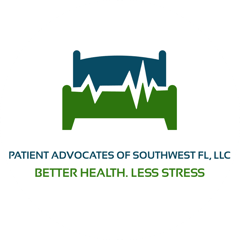6 Get Started Steps to Healthcare Self-Advocacy
Posted on July 5, 2022
When it comes to your health and well-being, no one knows your needs better than you do. Most of the time, it is a relatively simple process - an annual physical exam including blood work, followed by follow up visits to your primary care provider to manage any existing medical conditions. As you age, common health risks occur requiring minor adjustments as needed. Until that day when it's not.
When it comes to your health and well-being, no one knows your needs better than you do.
Most of the time, it is a relatively simple process - an annual physical exam including blood work, followed by follow up visits to your primary care provider to manage any existing medical conditions. As you age, common health risks occur requiring minor adjustments (medications, diet, exercise) as needed.
Until that day when a diagnosis for an ailment you’re experiencing, gets your attention. Suddenly a combination of progressive emotions – concern, fear, denial, most likely followed by, “What do I do now?”
If you are at all like me, each time I’ve experienced a personal hard stop, seismic health-related event (thus far, 3 times – once for myself with the other two for my son then mother), in search of answers and options for moving forward, I kick into advocate mode.
Faced with uncertainty and stress, an effective advocate asks questions and actively listens to the responses, followed by another set of questions. Similar to peeling an onion where the layers just keep coming, I continue to ask more until I have a baseline understanding of the situation, so that a plan, a starting point - begins to emerge.
These are the steps; I and those I’ve worked with most commonly use to get started:
1. Information Gathering: Keep notes (I’m a bit old school and always have steno pads or journals on hand) of conversations, test results, diagnosis(es), procedures, facts and other information.
a. It helps to organize thoughts and determine next steps.
2. Be prepared: What you don’t understand – ask questions and listen to the replies of the members of your care team: physicians, nurses, therapists and others:
a. “(In addition to what I currently know . . .) Is there anything else, or what else I should know?”
b. “Are there more questions I should be asking?”
3. Do your own research. The internet offers great information – if you know where to find it. A few of my favorite websites include:
a. The Free Medical Dictionary. Great search options:
www.medical-dictionary.thefreedictionary.com
b. WebMD. In addition to conditions and diseases, you can also source podcasts:
https://www.webmd.com/
c. PubMed. Great research:
https://pubmed.ncbi.nlm.nih.gov/
4. In the hospital. I’ve had mostly great experiences working with case managers. Just be aware, many are overworked by demanding caseloads. Others are burned out and may not be as helpful as you would expect. It is important to bear in mind, he/she is employed by the hospital.
5. Trust your instinct. If you sense the doctor and other decision makers are distracted and not 100% present with you in the moment, make sure you have her/his attention.
6. Communication. The flow of medical information: test results, plan of care, etc. flows withing the medical hierarchy (whether yours or your loved one) is frequently not shared as quickly or reliability.
When speaking with the doctors and when necessary, hospital staff, be factual, specific, clear and firm. Remind them, not to speak over your head or to assume you are not informed.
Advocating for yourself or for your loved one is not without its challenges. Emotions, loss of control (depending on others) can be demoralizing. Maintain your judgement. Finally, be safety conscious at all times.
Comments or questions, don’t hesitate to schedule a complimentary 30-minute consultation: www.patientadvocatesofswfl.com/appointments.



